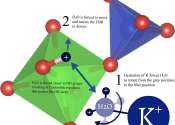Cardiac arrest, (also known as cardiopulmonary arrest or circulatory arrest) is the cessation of normal circulation of the blood due to failure of the heart to contract effectively. Medical personnel can refer to an unexpected cardiac arrest as a sudden cardiac arrest or SCA.
A cardiac arrest is different from (but may be caused by) a heart attack, where blood flow to the muscle of the heart is impaired.
Arrested blood circulation prevents delivery of oxygen to the body. Lack of oxygen to the brain causes loss of consciousness, which then results in abnormal or absent breathing. Brain injury is likely if cardiac arrest goes untreated for more than five minutes. For the best chance of survival and neurological recovery, immediate and decisive treatment is imperative.
Cardiac arrest is a medical emergency that, in certain situations, is potentially reversible if treated early. When unexpected cardiac arrest leads to death this is called sudden cardiac death (SCD). The treatment for cardiac arrest is cardiopulmonary resuscitation (CPR) to provide circulatory support, followed by defibrillation if a shockable rhythm is present. If a shockable rhythm is not present after CPR and other interventions, clinical death is inevitable.









